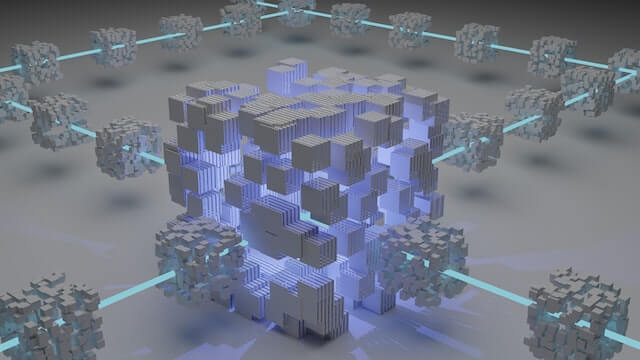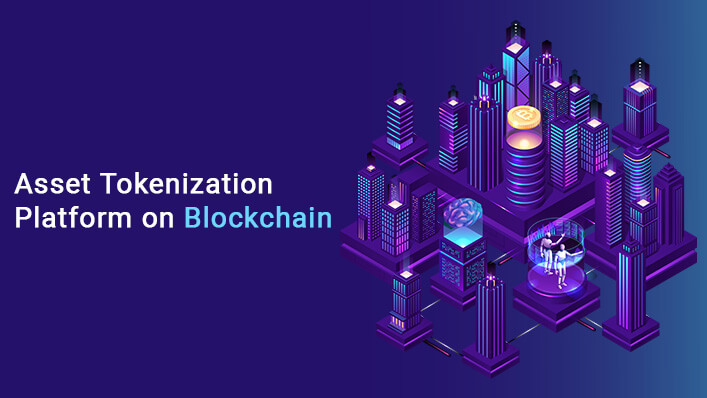If you’re like most people, you’ve probably heard of blockchain technology, but you may not be quite sure what it is or how it works. Well, you’re in luck, because in this blog post, we’re going to explain everything you need to know about blockchain technology.
So what is blockchain technology? Essentially, it’s a digital ledger that can be used to record transactions between two parties. Each transaction is verified and then added to the chain, which is publicly accessible
What is blockchain technology?
How does blockchain work?
A blockchain is a digital ledger of all cryptocurrency transactions. It is constantly growing as “completed” blocks are added to it with a new set of recordings. Each block contains a cryptographic hash of the previous block, a timestamp, and transaction data. Bitcoin nodes use the blockchain to differentiate legitimate Bitcoin transactions from attempts to re-spend coins that have already been spent elsewhere.
What is Bitcoin?
Bitcoin is a decentralized cryptocurrency that uses peer-to-peer technology to enable instant payments. The underlying technology of bitcoin is blockchain, which is a shared database that records all bitcoin transactions. Bitcoin is unique in that there are a finite number of them: 21 million.
How do I buy Bitcoin?
Bitcoin can be bought on exchanges, or directly from other people via marketplaces. You can pay for them in a variety of ways, ranging from hard cash to credit and debit cards to wire transfers, or even with other cryptocurrencies, depending on who you are buying them from and where you live.
How does blockchain technology work?
In its simplest form, a blockchain is a digital ledger of transactions. When someone uses blockchain to record a transaction, that transaction is added as a “block” to the ledger. Each block contains a timestamp and link to the previous block, so the entire history of all transactions made using blockchain technology can be traced back in time. In other words, blockchain is a way of recording and verifying transactions that is transparent, secure, and decentralized.
One of the key features of blockchain technology is that it is distributed. This means that instead of being stored in one central location (like a traditional database), the ledger of transactions is stored across a network of computers. This decentralized approach makes it very difficult for anyone to tamper with the records.
Another key feature of blockchain is that it is immutable. This means that once a transaction has been recorded and added to the ledger, it cannot be changed or removed. This ensures that the data on the blockchain is trustworthy and accurate.
So how does this all work in practice? Let’s say you want to buy a new car using Bitcoin (a digital currency that uses blockchain technology). You would first need to find a seller who accepts Bitcoin as payment. Once you have found a seller, you would then send your Bitcoin to their digital wallet. The transaction would be recorded on the Bitcoin blockchain, and everyone on the network would be able to see that you have sent the Bitcoin and that it has been received by the seller.
The benefits of using blockchain technology are its transparency, security, and decentralization. These features make it well-suited for applications like digital currencies, supply chain management, identity management, and more.
What are the benefits of blockchain technology?
There are many potential benefits of blockchain technologies. Some of the most highly touted advantages include:
Decentralization: One of the most attractive features of blockchain technology is its decentralized nature. By its very design, a blockchain is resistant to censorship and tampering, which could potentially make it a more secure and transparent way to store and manage data.
Increased security: Another advantage of blockchain technology is its increased security. Because data is stored across a decentralized network, it is less vulnerable to hacks or other malicious activity. Additionally, the use of cryptographic algorithms can further improve security.
Faster transactions: Blockchain technology can also potentially enable faster transactions. Because there is no need for a central authority to verify or approve transactions, they can be processed much more quickly. This could be particularly beneficial for international payments, which often take days or even weeks to settle.
Lower costs: Blockchain technology could also help to reduce costs by eliminating the need for middlemen or intermediaries. By directly connecting buyers and sellers, it may be possible to streamline transactions and reduce associated fees.
What are the challenges of blockchain technology?
Blockchain technology is still in its infancy, and there are many challenges that need to be addressed before it can be widely adopted. Some of the challenges include:
–Scalability: The current blockchain technology can only handle a limited number of transactions per second. This needs to be improved before blockchain can be used for large-scale applications.
-Energy efficiency: The proof-of-work consensus mechanism used by most blockchain networks is very energy intensive. This needs to be improved if blockchain is to be used on a large scale.
-Privacy: Current blockchain networks are not very private. This is a serious concern for many users and needs to be addressed if blockchain is to be widely adopted.
-Complexity: Blockchain technology is complex, and can be difficult to understand and use. This needs to be addressed if blockchain is to be widely adopted by the general public.
How is blockchain technology being used today?
Now that we know what a blockchain is and how it works, let’s take a look at how this technology is being used today. While blockchain was originally designed as the underlying technology for Bitcoin, it has since been adapted for a variety of other applications. Below are some of the most popular ways that blockchain is being used today.
Bitcoin and other cryptocurrencies:
As mentioned above, Bitcoin was the first and is still the most popular use case for blockchain technology. Cryptocurrencies are digital or virtual tokens that use cryptography to secure their transactions and to control the creation of new units. Bitcoin, the first and most well-known cryptocurrency, was created in 2009. Since then, thousands of other cryptocurrencies have been created. Ethereum, Litecoin, Bitcoin Cash, and Ripple are some of the other popular cryptocurrencies that use blockchain technology.
Payments:
Blockchain technology can be used to streamline payments between parties. For example, international payments can be made quickly and easily using cryptocurrency tokens such as Bitcoin. In addition, blockchain-based payment systems such as those being developed by companies like IBM and Microsoft can help to reduce fraudulent activities such as chargebacks.
Supply chain management:
One of the most promising applications of blockchain technology is supply chain management. By tracking items through a decentralized database, businesses can more easily trace items back to their point of origin. This can help to improve product safety and quality control while also reducing costs associated with lost or damaged items. In addition, this transparency can help build trust between businesses and their customers.
Identity management:
Another potential application for blockchain technology is identity management. Blockchain-based systems could be used to store identity information such as biometric data or passport details in a secure, tamper-proof way. This could streamline identity verification processes while also providing greater protection against identity theft and fraud.
These are just some of the ways that blockchain technologies are being used today. With its ability to provide secure, tamper-proof recordkeeping, it is likely that we will see even more innovative uses for blockchain in the future
What is the future of blockchain technology?
Bitcoin and other cryptocurrencies have been skyrocketing in value over the past year, and blockchain technology is often credited as the underlying reason. But what is blockchain technology, and what is its potential for transforming industries beyond cryptocurrency?
A blockchain is a distributed digital ledger that allows transactions to be securely recorded without the need for a central authority. Once a transaction is recorded on the blockchain, it cannot be altered or deleted, making it an immutable record of all activity. This transparency and security are two of the key reasons why many believe that blockchain has tremendous potential for transformation across a variety of industries.
Industries as diverse as finance, healthcare, real estate, and supply chain management are all exploring ways to integrate blockchain into their operations. By eliminating intermediaries and streamlining processes, blockchain has the potential to increase efficiency and transparency while reducing costs.
There are still many challenges that need to be addressed before blockchain can reach its full potential, but the future looks promising for this transformative technology.
How can I get started with blockchain technology?
If you’re interested in learning about blockchain technology, there are a few different ways you can get started. First, you can check out some of the resources available online. There are a number of websites that offer free or paid courses on blockchain technologies.
Another option is to join a blockchain community or meetup group. These groups typically have regular meetups where members can discuss various aspects of blockchain technologies. This is a great way to learn from other enthusiasts and get first-hand experience with the technology.
Finally, you can also try attending a blockchain conference or event. These events bring together experts from all over the world to discuss various aspects of blockchain technology. Attendees can learn about the latest developments in the industry and network with other professionals.
What resources are available to help me learn more about blockchain technology?
There are a number of blockchain technology resources available online that can help you learn more about how this technology works. Here are a few of the best:
–The Bitcoin & Blockchain Superconference: This annual event features some of the world’s leading experts on blockchain technology, offering attendees the chance to learn about the latest developments in the space.
–The Ethereum Community Forum: This online forum is a great resource for those wanting to learn more about Ethereum, one of the most popular blockchain platforms. The forum is full of discussions on all things related to Ethereum, from development and programming to trading and investing.
-CoinDesk: CoinDesk is a leading news and information site for all things related to digital currencies and blockchain technologies. The site features regular commentary from industry experts, as well as up-to-the-minute news on all the latest developments in the space.




